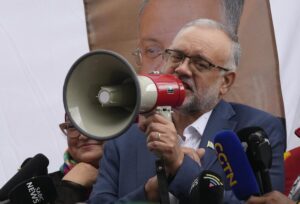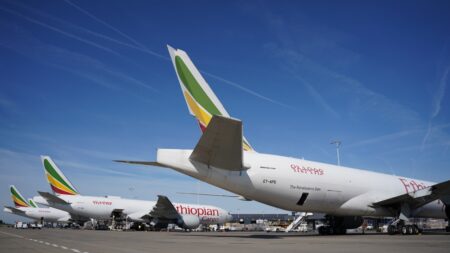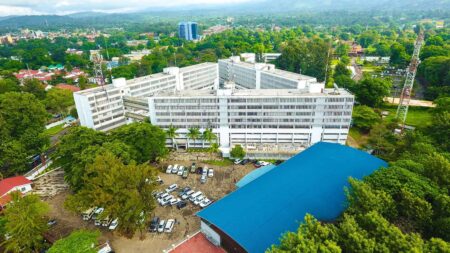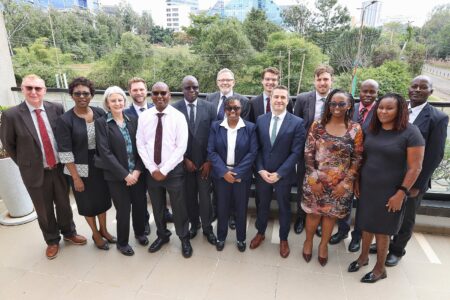- East African Cables is a private limited liability company incorporated in mainland Tanzania. It manufactures extensive cables for domestic and industrial lighting and power electricity transmission.
- The sale is subject to regulatory and shareholders’ approval.
- Upon completion of the sale, EAC Tanzania will cease being a subsidiary of the company.
Msufini Tanzania Limited (MTL), a chlorine and sodium hydroxide manufacturer, is set to buy a majority stake in East African Cables’s Tanzanian subsidiary if regulators and stakeholders approve an agreed deal between the two firms.
East African Cables, which is listed on the Nairobi Securities Exchange, has entered into a share purchase agreement with Msufini for the sale of 16 218,000 ordinary shares at a value of Tsh10, constituting 51 per cent of the issued share capital of East African Cables (Tanzania) Limited.
East African Cables is a private limited liability company incorporated in mainland Tanzania. It manufactures extensive cables for domestic and industrial lighting and power electricity transmission.
The sale is subject to regulatory and shareholders’ approval.
“Upon completion of the sale, EAC Tanzania will cease being a subsidiary of the company,” East African Cables CEO Paul Muigai said in a notice to investors and shareholders.
Read also: Navigating Africa’s Depths: How SEACOM’s Cable Disruption Affects Global Connectivity.
Financial struggles
The sale of the Tanzanian subsidiary follows a series of poor financial performances by East African Cables and parent company TransCentury, which is deep in debt with the closure of some subsidiaries, including engineering and construction company Civicon.
East African Cables sunk deeper into losses, reporting a $1.5 million loss for the half-year period ended June 2023, amid high debt obligations with a poor run at its Tanzanian subsidiary currently on sale.
This is from a loss of $1.3 million reported in the same period the previous year, a 15.2 per cent fall, as investors continued to miss out on dividends.
The losses came from increased operating expenses, which wiped out gains in gross profits that went up 24 per cent to $2.2 million.
The growth was attributed to increased sales volumes in the retail sector, sustained market development and communication efforts, and increased operating efficiencies.
“During the period under review, the Tanzania subsidiary continued to experience working capital constraints,” management said, significantly affecting its bottom line and negatively impacting the Group’s consolidated performance.
“East African Cables Plc’s Kenya business has maintained a growth trajectory, sustained by growing demand from retail and wholesale categories for building and construction projects,” it said in its financial statement.
Read Also: Kenya relaxes rules on Mergers & Acquisitions
Insolvency
The Group faces an insolvency threat from Equity Bank, which the company challenged in court.
At the end of June, current liabilities outstripped current assets, which stood at $23.9 million against an asset value of $6.3 million.
Last year, in June, Kenyan-based Equity Bank placed the parent company TransCentury and E. Cables under receivership over a disputed $33.8 million loan, months after it missed a $14.1 million cash call.
Muniu Thoithi and George Weru of consultancy firm Price Waterhouse Coopers (PwC) were appointed joint receivers.
However, a commercial court temporarily suspended a decision by Equity Bank to place the affairs of the investment firm under receive managers.
The Judge issued the order after the firm told the court that the appointment of receiver managers would cripple their operations, particularly ongoing massive projects, including the ones being carried out by its subsidiaries.
Some projects valued at over $28.2 million are in Kenya, Tanzania, Uganda, DRC and Zambia.
Most are at an advanced stage, and others have been finalised just pending inspection and approval, the parent company said.
According to the firm, completing these projects will raise additional funds towards liquidating outstanding debt.
The projects vary from the supply and installation of weighbridges to the renewal of expired licences.
The firm told the court that it had been liquidating the outstanding debt and had made all efforts to agree on a workable program with Equity in light of the challenging economic situation.
Read also: Kenya’s Equity Bank completes acquisition of Spire Bank
East African Cables intensified operations
According to the CEO, the firm has intensified innovation and produced electrical accessories, including switches and circuits alongside cables.
Last year, East African Cables was awarded a supply tender for electrical cables and conductors worth US$ 1.6 million to Kenya Power, as the utility firm moved to support local manufacturers instead of imports from overseas.
East African Cables manufactures copper cables and conductors for high, medium, and low-voltage power transmission intended for domestic and industrial manufacture of aluminium conductors and cables used for power transmission and distribution.
Its products are targeted toward the retail market, the minor and turnkey contractor projects and the utility market.
Muigai said they remain focused on growing a strong order pipeline and improving contribution from the export market.
“Our business is on the right path to recovery, and I am confident that as we implement our refreshed strategy, the business will become profitable and give a return to shareholders in the medium term,” he said.











